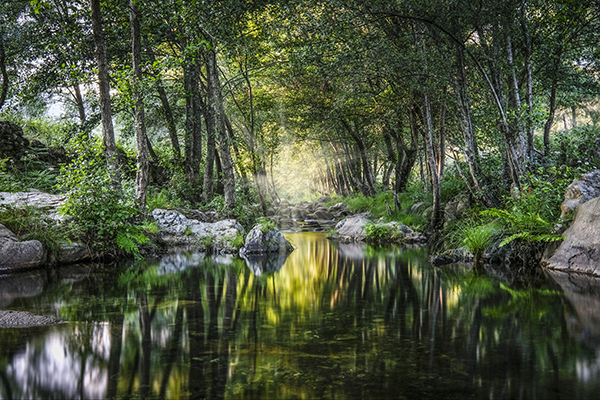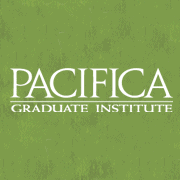This Advanced Training Certificate in Ecopsychology, offered online over 13 weeks, has the distinct advantage of combining four perspectives from four internationally renowned authors, educators, and transformational leaders in the fields of Ecopsychology and Ecotherapy. Ecopsychology brings ecology and psychology together to create novel and exciting approaches to the urgent needs of our time. Although its most visible face is the practice of Ecotherapy, which emphasizes the synergy between human well-being and the health of the planet, a number of other avenues have been developed, including those involving depth-psychological, multicultural, transpersonal, community, and liberatory engagement with earthly places, thereby cultivating personal and cultural transformation.In this program, we will also explore Ecopsychology considered as a socially and philosophically radical project that integrates psychology and ecology by questioning much of the conventional thought and practice currently found in these two arenas.
Because the practices and ideas of Ecopsychology are open to everyone, this Certificate neither requires nor confers a license or degree. It is designed as an overview offering a range of concepts, techniques, and strategies by surveying a number of key approaches to Ecopsychology. It will be of interest to everyone—clinicians, coaches, activists, and curious others—looking for a more holistic and engaged way forward. The Certificate offers a range of readings, lectures, weekly reflections, and live sessions, so participants will need to make sufficient space in their schedules to learn as much as they can over the 13 weeks.
Program Format
Each week you will learn from: an audio or video presentation by Andy, Jeanine, Linda, or Garret; a list of required or recommended Readings/Videos/Resources; online Discussion with the other participants and instructors, based on the responses you post each week to that week’s assignment; and a Live session with one of the instructors. Live sessions will be scheduled at varying times in order to maximize participation, and will be recorded for those who cannot attend a given week. Assignments include indoor and outdoor exercises designed to deepen learning and enrich nature connection.
Required text for Andy’s part of the course: Radical Ecopsychology: Psychology in the Service of Life, 2nd ed. (SUNY Press, 2013).
Also recommended for this certificate: Jeanine M. Canty, ed., Ecological and Social Healing: Multicultural Women’s Voices (Routledge, 2017); Linda Buzzell & Craig Chalquist, eds., Ecotherapy: Healing with Nature in Mind (Sierra Club Books, 2009); and Craig Chalquist, Terrapsychological Inquiry: Restorying Our Relationship with Nature, Place, and Planet (Routledge, 2020); Mary Watkins, Mutual Accompaniment and the Creation of the Commons (Yale, 2019).
The four instructors each cover a different perspective on ecopsychology, as described below.
Individual Session Descriptions
The Project of Ecopsychology: History of the Field, and Ecopsychology Viewed as a Radical Transformation of Psychology
Andy Fisher
Andy’s work in ecopsychology is about the project of ecopsychology as a whole, including how it has developed as a field over the last three decades. The sessions with Andy therefore provide a background history to ecopsychology (Week 1) and an introduction to Radical Ecopsychology, which is his term for the field of ecopsychology viewed as a radical project (weeks 2, 4, and 5). The emphasis here is on how a radical, coherent image of ecopsychology allows us to see deeply into the current historical moment and to discern the precise tasks and opportunities the field may best self-organize around. These sessions also stress how the numerous intersecting social issues of our times—the unfinished business of history—are unavoidably at the center of the ecopsychological project. A final goal is to help participants build a sense of confidence with the difficult conversations and unconventional methods necessary for transforming psychology into ecopsychology.
Conceptions and Practices of the Self in Ecopsychology: Ecological, Multicultural, Transformative
Jeanine M. Canty
Participants will work with Jeanine for three weeks, segmented throughout our time together, weaving together concepts and practices that expand our sense of self for the greater whole. In week three, we will get a strong sense of moving beyond a limited sense of ego to one that is embedded within the ecological realm. In week six, we will build on this work, diving into issues of social justice and how to engage multiple perspectives. Finally, during week ten, we will pull this together with a more transpersonal sense of self. Each of these weeks will require a willingness to work with difficult emotions, compassion, and mindful change.
Ecotherapy: Nature-based Healing Practices for Physical, Psychological, and Cultural Well-being
Linda Buzzell
This portion of the program (weeks 7, 8, and 9) provides an introduction to the growing field of ecotherapy (or as some call it, applied or clinical ecopsychology). We’ll explore the many different ways that a deep green perspective is transforming psychological, social, cultural, and medical healing practices to treat a wide variety of populations and conditions. Students will become aware of the research that supports this transformative evolution and learn about the many increasingly popular nature-based treatment modalities so they can choose those that feel most relevant to their personal or professional goals.
Earth Accompaniment: Integrating Liberatory and Community Practices
Garret Barnwell
In this part of the program (weeks 11, 12, and 13) we will learn several reflective and community-level practices and ideas for being in accompaniment with the Earth. We will first begin with Terrapsychology, exploring how, through folklore, dreams or local motifs, we are in continuous conversation with the world around. In response to some of this and new material (such as the climate and environmental justice struggles taking place around the world), we move deeper into the praxis and integration of Earth Accompaniment and Community Psychologies. Students will become aware of how people, often psychologists themselves and at times practicing from an ecopsychological position, are standing in solidarity with people, mountains, rivers, and trees, and our planet for the flourishing of all life.
Program Sessions
Week 1. The History of Ecopsychology (and the Ecopsychology of History). This certificate program presents four different perspectives on ecopsychology. As a way to provide a common context for the program and to set the stage for thinking about ecopsychology, we begin by providing a brief history of the field. First named as such in the early 1990s, it has “first generation” and “second generation” camps, among others. This session also presents the idea that a third, more social justice-oriented generation of ecopsychology is on the rise. (Andy)
Week 2. Ecopsychology as a Radical Project. Radical ecopsychology views ecopsychology as a radical ecological transformation of psychology. This session, then, is about reconstructing psychology in light of an ecological view of reality. This makes ecopsychology something very different than psychology as we have come to know it. We will give careful attention to the meaning of the word radical (“going to the roots”) and to the challenges that a radical approach involves. (Andy)
Week 3. From Ego to Ecological Self. A key need is for individuals within our society to develop from the small ego to the ecological self. Within this week, we will examine how western, globalized corporate culture has over-developed our individual egos, minimizing our ability to connect with nature including other humans. A strong component of this work will be to develop our ecological self and establish a mindfulness practice. Key concepts: self, arrested development, narcissism, consumerism, ecological self, mindfulness. (Jeanine)
Week 4. Recollective Ecopsychology. Ecopsychology is about remembering the deep interconnection between psyche and nature. Radical ecopsychology frames this as the recollective dimension or side of ecopsychology. What difference does this make? (Andy)
Week 5. Critical Ecopsychology and Integrative Praxis. The other main side of Radical Ecopsychology is Critical Ecopsychology. It joins critical psychology and radical ecology in order to produce a unique and powerful critical perspective on our historical moment. Radical Ecopsychology as a whole then involves a praxis (theory and practice) for integrating the recollective and critical sides of the field into a specifically ecopsychological form of politics. We will focus on decolonization as a particular integrative term. (Andy)
Week 6. The Multicultural Self. Picking up on our work with developing our ecological selves (week 3), this week work to identify and strengthen our multicultural self. We will gain awareness of how the ecological crisis affects diverse positionalities, in particular communities of color, indigenous communities, and women. Then we will turn to work with our capacity to hold more than one perspective at once, our multicultural self. Key concepts: environmental justice, indigenous issues, ecofeminism, white fragility, multicultural self. (Jeanine)
Week 7. Ecotherapy as Evidence-Based Healing Work. Overview of the research and an introduction to the many populations, settings, and conditions that ecotherapy can treat. (Linda)
Week 8. Tending the Inner and Outer Landscape. We’ll explore many modalities that are now emerging into mainstream healing and education, including “wild nature within” practices like nature meditation and guided visualization; garden and farm therapies; animal-facilitated therapies; wilderness and forest experiences; nature-based art and somatic therapies. (Linda)
Week 9. Praxis Issues. We will cover the following topics: exploring how to customize ecotherapy treatment to the specific situation, community and client(s); advancing from Level 1 to Level 2 ecotherapy practice; avoiding cultural appropriation; dealing with legal and ethical concerns; discovering practical ways we can bring our unique healing gifts and understandings of ecopsychology and ecotherapy into our professional careers. (Linda)
Week 10. The Transpersonal Self. Bringing together our work with developing both our ecological self and multicultural self, within this week, we will weave these identities together and dive into the transpersonal self and the role this might play in collective healing. Understanding our relationship to these widening circles will be engaged through readings, lecture, reflection, and mindful practice. Key concepts: transpersonal self, Self, transformative Self, spirituality. (Jeanine)
Week 11. Terrapsychology: Working with the Soul of Place. We will learn about the profound influences exerted on mind and body by the places where we live, influences mostly unconscious but accessible through work with dreams, local images and motifs. (Garret)
Week 12. Ecopsychology Accompaniment. We will learn about the praxis of liberatory psychologies, which emerged from struggles in Latin America and Africa. Ecopsychosocial accompaniment as a way of being with others, including the more-than-human world, will be outlined. Historical and present vignettes of Earth Accompaniment will be used to show how different peoples are standing in solidarities with other-than-human life. (Garret)
Week 13. Integrating Ecopsychology and Community Psychology. We will explore how ecopsychology and community psychologies are being used and at times integrated for the ends of climate justice. In doing so, we will learn and reflect on how bearing witness to the climate justice struggle may be an important part of our work as ecopsychologists. (Garret)



